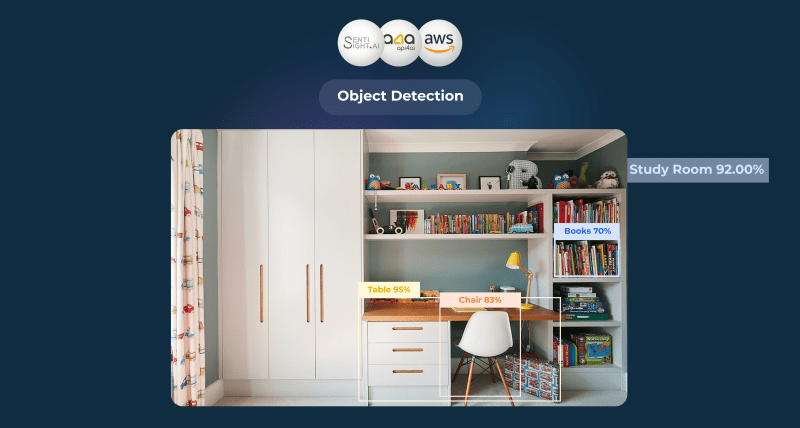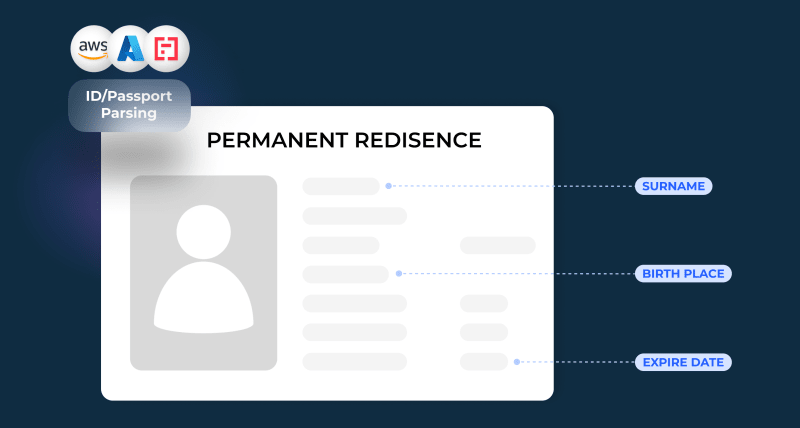Known for its vast paper trails, complex transactions, and intricate negotiations, the real estate industry is witnessing a transformation driven by Artificial Intelligence (AI). From simplifying paperwork to enhancing user experiences, AI technologies are reshaping the real estate landscape.
In this article, you will explore the different top solutions of AI in the industry, showcasing the potential to revolutionize the way real estate functions while giving realtors keys to easily set up AI in your real estate business.
Best Real Estate AI tools and solutions
1. Invoice Parsing for Real Estate
Real estate transactions involve heaps of invoices, from property maintenance to transaction costs. AI can automatically parse and extract vital data from these invoices, making accounting and cost tracking seamless.
Many invoice parsing AI providers allow you to extract key information from invoices, such as AWS, Google Cloud, Microsoft, Dataleon, Affinda, Mindee, and so forth. Taking advantage of the multiple providers is mandatory to process perfect invoices from different countries, different customers/suppliers, etc.
More than just invoices, you can monitor and automate the processing of all financial documents including receipts, bank checks, and more.
2. Translation Services in Real Estate
The real estate market operates on a global scale, often requiring effective communication between agents, buyers and sellers from different countries. AI-powered translation tools play a vital role in breaking down language barriers. Whether it's sharing a property listing from Spain with a potential buyer in China, or drafting a rental agreement for an expatriate, AI-powered instant and accurate translations serve as a critical bridge to overcome communication barriers.
International communication goes beyond mere conversation to include documents, websites and advertisements. This level of global communication is unattainable without the best translation services available.
TranslaThor is a tool that allows you to automatically call and use the right translating provider (DeepL, Google, Amazon, IBM, Microsoft, ModernMT, Open AI, etc.).
3. Computer Vision for Property Viewing in Real Estate
Virtual property tours have become increasingly commonplace, especially in the post-pandemic era. In this context, computer vision, a branch of AI, has the potential to significantly improve the quality of these virtual tours. It can automatically label and describe various elements within a property, from the exquisite Italian marble in the living room to the energy-efficient appliances in the kitchen. It can also assess the condition of the property, helping to estimate repair costs and identify potential problems.
The Object Detection API is user-friendly, emphasizing the importance of the automatic tagging feature. For even greater accuracy in detection, this API enables the user to develop their own object detection models. Many providers allow you to detect objects for your real estate project: api4ai, AWS, Microsoft, SentiSight.ai, Clarifai, Google Cloud, etc.
This facilitates the identification of building materials, deterioration, and intricate features with superior precision.
Using the most advanced AI models, you have the capability to upload an image and inquire about the image, such as requesting a description of it or identifying specific elements within it. For enhanced functionality, explicit content detection can be utilized.
4. Chatbots and Large Language Models (LLMs) for Realtors
Potential buyers and renters have numerous questions and instead of real estate agents answering common queries repeatedly, AI-driven chatbots can handle these interactions. These bots, driven by advanced language models, are capable of providing detailed answers, scheduling property viewings and even initiating pre-negotiation processes. This allows real estate agents to focus on more complex tasks.
The initial choice is to use established large language models (LLMs) to create and improve prompts, guaranteeing that your clients receive the most precise responses. However, to further enhance the chatbot's performance, you could craft your own using LLM models. AskYoda simplifies this process by enabling you to upload your data and automatically generate an LLM chatbot that can provide responses based on your input.
Providers available on AskYoda include: OpenAI, Google, Cohere, Mistral, Anthropic, A21Labs and more exciting additions on the horizon!
5. Text Generation for Listings in Real Estate
Crafting the perfect property listing is an art and AI with its text generation capabilities can assist agents in this task. By analyzing data about a property, from its features to its location, AI can automatically generate compelling descriptions that highlight the property's unique selling points, ensuring it captures the attention of potential buyers or renters.
By using different text generation providers, you will be able to generate product descriptions faster and choose the style you deserve for the description.
6. Legal Document Assistance for Real Estate
Real estate transactions are accompanied by a myriad of legal documents, from purchase agreements to lease contracts. AI can aid in drafting, reviewing, and analyzing these documents. With OCR and NLP, these tools can highlight potential issues, suggest standard clauses, and even automate the creation of routine documents, ensuring that all legalities are seamlessly handled.
You can use data extraction and OCR models to extract structured information from PDFs: Affinda, AWS, Base64, Dataleon, Google Cloud, HireAbility, Klippa, etc. Then you can use NLP engines such as NER and keyword extraction to identify key information in your documents.
7. Identity Verification (KYC) in Real Estate
One of the foundational pillars of any real estate transaction is ensuring the authenticity of involved parties. AI-enhanced identity verification tools are a game-changer. By analyzing a variety of data sources, including biometric information, facial recognition, and official documentation, AI verifies individuals' true identities, streamlining the transaction process and significantly reducing the risk of fraud.
AI provides an easy way to extract information from ID documents (ID, passports, driver's license, etc.), but also implements face recognition or face comparison APIs into your systems.
Conclusion
The impact of AI on the real estate industry is substantial, encompassing every aspect of the field. By streamlining procedures, enhancing user experiences, and improving communication, AI technologies offer significant prospects for the future of real estate.
With the advancement of these tools, we can expect further enhancements and novel innovations. It is apparent that the integration of AI and the real estate sector constitutes an expanding domain that brings prospects for industry experts and consumers alike.








